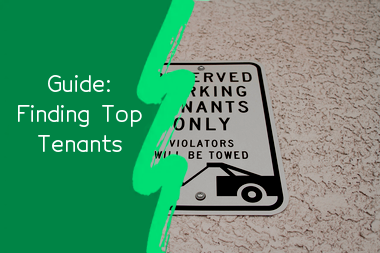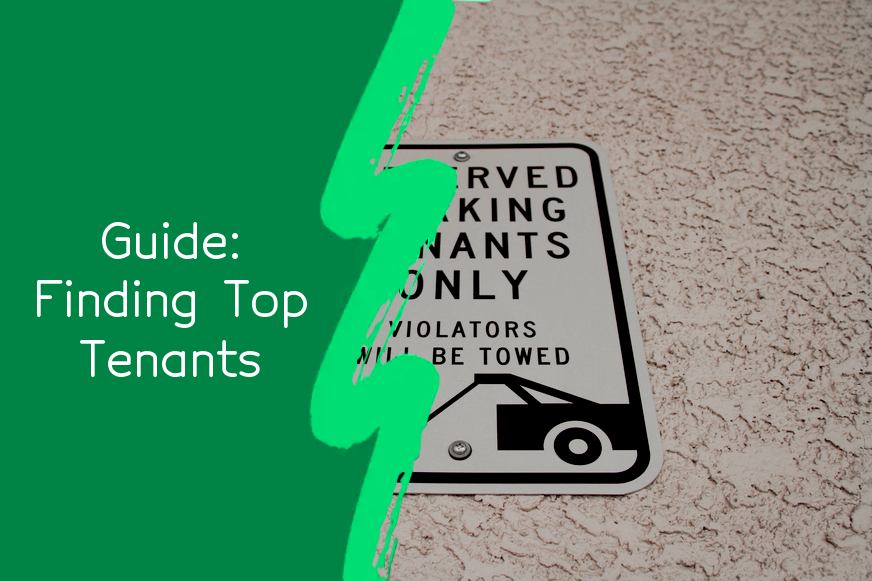I can provide some steps that landlords or property managers could potentially follow when screening potential tenants:
- 1. Advertise the unit: Create an online listing and advertise the unit in multiple places to attract potential tenants.
- 2. Collect rental applications: Have potential tenants fill out a rental application that includes their personal information, employment history, rental history, and references.
- 3. Run a credit check: Check the tenant's credit score and history to verify their financial stability and ability to pay rent on time.
- 4. Conduct a background check: Consider running a background check on the prospective tenant to confirm their identity and check for any past criminal activity.
- 5. Verify employment and income: Contact the tenant's employer to verify their employment and income.
- 6. Contact references: Reach out to the tenant's references to confirm their character and behavior as a tenant.
- 7. Interview the tenant: Conduct an interview to ask questions about why they want to rent the unit, their rental history, and their lifestyle habits.
- 8. Review screening results: Once all screening steps have been completed, review the results to determine if the tenant is a good fit for the unit.
- 9. Approve or deny the tenant: Based on the results of the screening process, make a decision whether to approve or deny the tenant.
- 10. Sign a lease agreement: If the tenant is approved, sign a lease agreement that outlines the terms of the tenancy.
Introduction: �Great Tenants make Great Rentals
Yes, great tenants can significantly impact rental property in numerous ways. The following are some of the critical reasons why having great tenants is essential for every landlord.
- 1Tenant Retention: Great tenants tend to stay longer in rental properties, reducing the cost of tenant turnover, vacancy time, and lost rental income. Tenant retention is critical in maintaining consistency and predictability in rental income, which helps investors plan their financial future.
- 2Rent Payments: Great tenants pay their rent on time, and they are more likely to respect the terms of the lease agreement. This means that landlords will not have to chase tenants down for rent or evict tenants for non-payment.
- 3Property Maintenance: Great tenants often exhibit care and respect for the rental property. They keep the property clean, maintain the property in good condition, report problems promptly, and follow its rules and guidelines.
- 4Lower Expenses: Great tenants help to reduce the expenses of property management by keeping the rental property in excellent condition. This, in turn, helps landlords save money on repairs, cleaning, and maintenance expenses.
- 5Improved Reputation: Great tenants contribute to building a positive reputation for the rental property. This may lead to referrals for other high-quality tenants, and ultimately increasing the value of the investment.
In summary, having great tenants is crucial in ensuring the success of rental property investment. They help to minimize turnover and vacancy time, pay rent on time, take good care of the property, reduce expenses, build a positive reputation, and ultimately increase profitability.
Applicant Acceptance Standards: Your Key to Finding Good Tenants
Applicant Acceptance Standards refer to the criteria that landlords or property managers use to evaluate potential tenants for their rental properties. These standards typically include a set of rules, guidelines, requirements, and criteria necessary for tenants to meet before they can be approved as renters.
The Applicant Acceptance Standards help in finding good tenants in several ways:
- 1 Verifies Tenant's Identity Applicants are required to provide identification documents, which confirm their identity and enable landlords to run credit and background checks on the individual.
- 2 Financial Background Assessing financial background checks assists the landlord in determining whether or not the prospective tenant has a stable income and credit history to pay rent on time. Landlords may ask for a credit score of 650 or above, stable employment, previous rental history, and other details.
- 3 Criminal History Some landlords require tenant applicants to have a clean criminal history. This standard ensures the safety and well-being of other tenants and reduces the likelihood of any criminal activity.
- 4 Tenant Behavior - Applicant Acceptance standards also involve requirements such as no drug use, parties, or activity on the property that would cause damage or noise disturbances.
By establishing clear and comprehensive applicant acceptance standards, landlords and property managers safeguard their properties and are more likely to identify responsible and reliable tenants. Moreover, having guidelines helps to prevent discrimination against tenants who may feel aggrieved in case of rejection. Overall, creating such standards helps to make the tenant selection process more objective and transparent and increases the chances of successful tenant-landlord relationships.
Benefits of Using Applicant Acceptance Standards
Applicant Acceptance Standards are a set of criteria used to evaluate and approve or deny a lease application from a prospective tenant. These standards are important in the real estate industry as they help landlords and property managers to assess the suitability of a potential tenant and reduce the risks associated with renting out their property. The following are the benefits of using Applicant Acceptance Standards in real estate:
- 1Screening for Qualified Tenants: Applicant Acceptance Standards enable landlords and property managers to screen rental applications to identify qualified tenants who meet their leasing requirements. This screening includes verifying the applicant's employment, income, credit history, rental history, and criminal history. By screening tenants with these standards, landlords can be sure that their tenants have the ability to pay rent, take care of the rental property, and minimize risks associated with renting.
- 2Minimizes Risk: Landlords and property managers can use Applicant Acceptance Standards to minimize risks associated with leasing their properties. Some risks could be costly repairs, damages to the property, late payment or delinquency of rent, or even legal disputes. The screening process based on the Applicant Acceptance Standards can minimize these risks and ensure that landlords have tenants that are qualified, responsible, and reliable tenants.
- 3Legal Compliance: Applicant Acceptance Standards help landlords and property managers to ensure that they are in compliance with the fair housing laws. These laws prohibit discrimination against potential tenants based on race, color, national origin, religion, sex, familial status, or disability. By using these standards, landlords can demonstrate that their leasing decisions are based on objective criteria, and not discriminatory.
- 4Protects Tenants as well: The Applicant Acceptance Standards protect tenants by ensuring that they live in a safe environment. By screening potential tenants, landlords can identify any criminal history or poor rental history that may indicate problematic behavior that could put other tenants at risk. This process also helps tenants to avoid living in a building that is not well-maintained or has a high risk of property damage or crime.
In conclusion, by using the Applicant Acceptance Standards in real estate, landlords and property managers can minimize risk, screen applicants for qualified tenants, ensure legal compliance, and protect the tenants. It helps the landlord secure financially stable tenants that will help enhance the value of their property.
How to Create Great Tenant Applicant Acceptance Standards
Creating great tenant applicant acceptance standards is critical for real estate investors or landlords to build a reliable and profitable rental property portfolio. Here are the steps you can follow to establish top-notch tenant applicant acceptance standards:
- 1Identify Your Ideal Tenant Profile: Before creating the standards, it is crucial to have a clear understanding of your ideal tenant. Consider aspects such as income level, occupation, credit score, rental history, and lifestyle preferences.
- 2Create a Comprehensive Tenant Screening Process: A comprehensive tenant screening process can help you weed out undesired applicants. The screening process should include income and employment verification, criminal background check, credit check, rental history, reference checks, and eviction history check.
- 3Establish Clear Eligibility Criteria: Set specific eligibility criteria that potential tenants must meet. For example, you might require a minimum credit score of 650, a monthly income of at least three times the rent amount, and a clean criminal record.
- 4Develop a Standardized Rental Application: Creating a rental application ensures that you receive all the necessary information from potential tenants. The application should be comprehensive, covering basic personal information, income and employment history, references, and consent to background/credit checks.
- 5Utilize a Consistent Scoring Method: Create a scoring method that assigns points to different aspects of your screening process. For instance, applicants with strong credit scores and excellent rental history might score higher than those with average or poor credit scores.
- 6Review the Standards Regularly: Always review your tenant applicant screening standards to ensure that theyre current and relevant. As the market changes, you might need to adjust your eligibility criteria to attract the best tenants.
- 7Clearly Communicate Your Standards: Clearly communicate your standards to all potential tenants and real estate agents. This way, applicants know what to expect, and it saves you time and money in advertising and screening.
In conclusion, creating great tenant applicant acceptance standards is crucial for a successful real estate investment. With a comprehensive tenant screening process, standardized rental applications, and clear communication of your standards, you can attract high-quality tenants and build a thriving rental property portfolio.
Income and Employment Verification:
Income and Employment Verification in real estate refers to the process of verifying the income and employment of an individual who is applying for a mortgage loan or renting a property. This verification process is necessary because it helps lenders and landlords determine the borrower's ability to make timely payments on their loan or rent.
Income verification involves verifying how much money an individual makes from their job or other sources of income, such as self-employment or investments. This information is typically gathered through the individual's tax returns, pay stubs, or bank statements. Lenders and landlords may also request a letter from the individual's employer verifying their current employment status, pay rate, and length of employment.
Employment verification involves verifying that an individual is employed and the length of their employment at a specific company. This is important because it helps lenders and landlords assess the borrower's income stability, job security, and ability to make payments on time. Typically, lenders and landlords will contact the employer directly to confirm these details.
In summary, income and employment verification are critical steps in the loan or rental application process. They help lenders and landlords evaluate the creditworthiness and reliability of the borrower, which is essential in making informed decisions and mitigating potential risks.
Just one more thing: if you liked the article, please like us on social media and share this article with friends.



